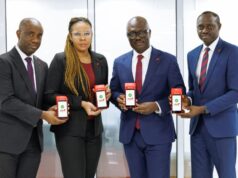LAGOS, MAY 11, 2018 – The Economic Intelligence Group of Access Bank says it sees inflation rate (year-on-year) in April to sustain the downward trend started last year, easing to 12.56 per cent compared to 13.34 per cent in March.
The lender said though the National Bureau of Statistics (NBS) is scheduled to release the inflation figure for April 2018 on Sunday based on the Data Release Calendar available on its website, its methodology adopts an autoregressive analysis of past prices, while recognising all the assumptions used by the NBS in its computation of monthly composite consumer price index (CCPI).
“Looking in more detail at the drivers, our analysis indicates that the slower inflation rate in April reflects a moderation in food prices and continued stability in the currency.
“Food inflation, which makes up 51.8 per cent of the CPI basket continued its descent in April. Based on our survey, this mainly reflected declines in prices for staples such as yam and Irish potato which continue to benefit from robust supplies to the market from barns across the country as well relatively stable transport costs in the month. Processed foods such as pasta and milk also nudged slightly lower, enjoying support from stable transport prices,” the lender said in an emailed report.
It explained that April’s easing of price pressures also reflects stability in the core index which excludes farm products and energy prices, owing to improved forex liquidity and sustained CBN interventions. At the parallel market, the naira closed at N362/$ in the parallel market on April 30th same as a month earlier
Treasury bill yields are likely to contract further, as market players react to declining inflation. The yields on the three- and six-month treasury bills settled at 10.72 per cent and 11.02 per cent respectively on April 30th, compared with 14.43 per cent and 14.97 per cent in that order on March 29th.
The lender said while continued slowdown in the price pressures supports the case for less restrictive monetary policy, we believe the monetary regulator may likely wait to see inflation trend below 12 per cent before commencing easing.









